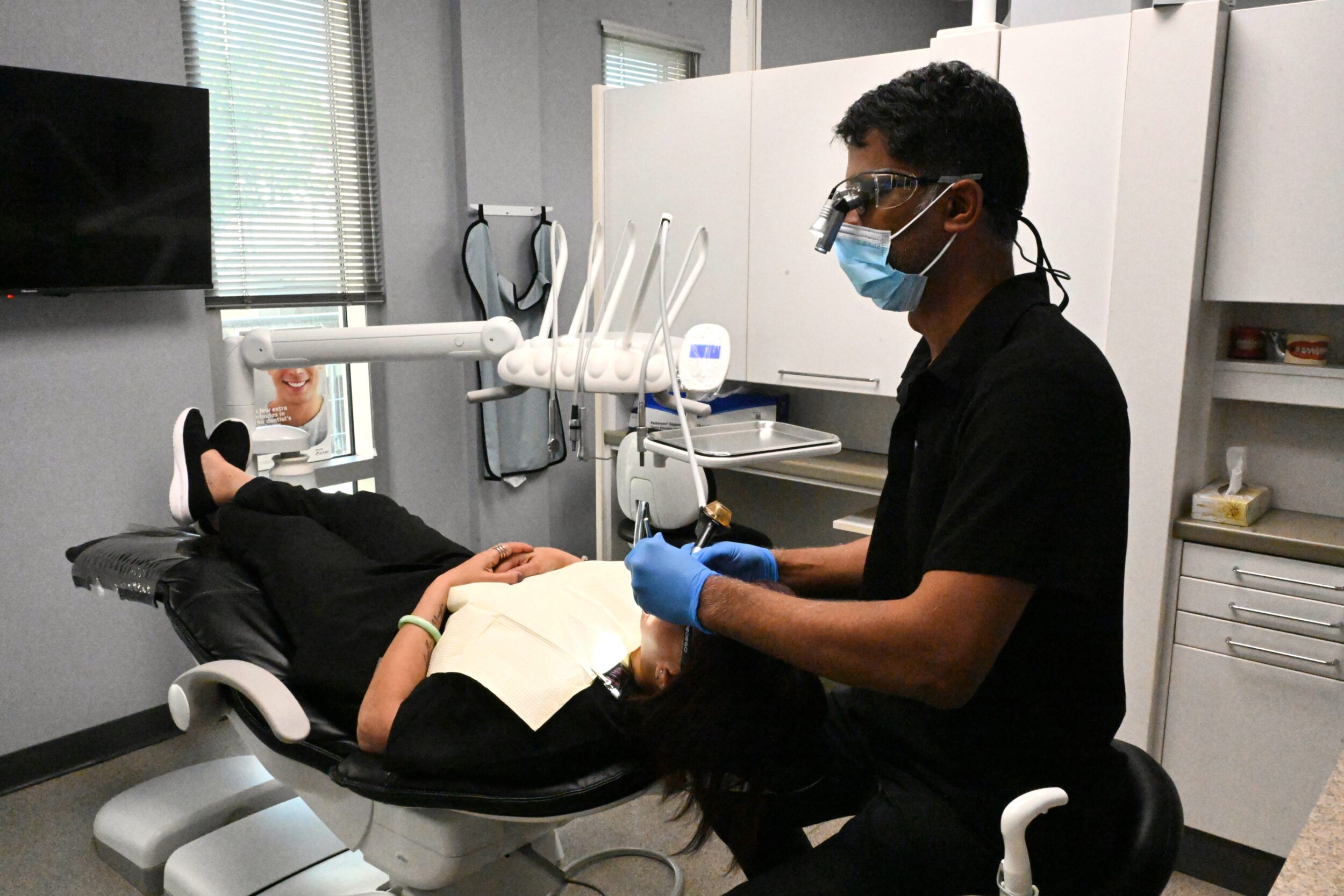When Should Children Have Their First Dental Visit in Calgary, AB?
An initial “well-baby” appointment with a pediatric dentist should be scheduled six months after the first tooth appears, or no later than the child’s first birthday, according to the American Academy of Pediatric Dentistry (AAPD).
Even though this may seem surprisingly early, infant and toddler tooth decay has been on the rise in recent years. In children, tooth decay and early cavities can be extremely painful, and if not treated promptly, can lead to poor oral health in adulthood.

Pediatric dentists are specialists in child psychology and child behavior, and are an important resource for information, guidance, and advice. Sometimes, the pediatric dentist can help parents establish sound oral routines for their children and help eliminate unwanted oral habits (such as the use of pacifiers and thumb sucking).
Are there any potential dental problems that babies may encounter?
A baby is at risk of tooth decay from the moment the first tooth erupts. During the first appointment, the pediatric dentist will demonstrate how to brush and floss the infant’s teeth to protect them from harm.
Early childhood caries (cavities) is more likely to occur in infants who drink breast milk, juice, baby formula, soda, or sweetened water from a baby bottle or sippy cup. A pediatric dentist discourages parents from filling cups with sugary drinks, dipping pacifiers in honey, and cleaning pacifiers in their mouths in order to prevent the spread of oral bacteria to their children.
Additionally, a pediatric dentist can assess an infant’s fluoride intake and balance it. Fluorosis is a condition that can occur in later childhood as a result of excessive fluoride intake between the ages of one and four. Alternatively, too little fluoride may make young tooth enamel more susceptible to decay.
During the first visit, what happens?
The dental offices of pediatric dentists are filled with fun and stimulating activities. The dental team is fully trained in communicating with infants and children.
During the child’s first visit, the pediatric dentist will discuss oral hygiene and ask questions about the child’s oral habits. This examination is conducted knee-to-knee between the pediatric dentist and the parent so that the child is able to see the parent at all times. It may be necessary for the dentist to clean the infant’s teeth if they appear stained. A topical fluoride treatment is often applied to the teeth after this cleaning.
A pediatric dentist may ask you a number of questions during your first appointment.
In addition to asking questions about the child’s current oral care and diet, the pediatric dentist will also ask about their oral habits and their current fluoride intake.
Parents can seek advice from the pediatric dentist on the following issues once answers to these questions have been established:
- Avoiding accidents.
- Fluoride and xylitol should be added to infants’ diets.
- Transitioning from sippy cups to adult-sized drinking glasses (12-14 months).
- The oral care routine should be fuss-free.
- Making bedtime a drink-free time.
- Keeping a healthy diet.
- Preventing tooth decay.
- Choosing a non-fluoridated, ADA-approved toothpaste for the infant.
- Choosing the right toothbrush.
- Choosing a pacifier that is orthodontically correct.
- Positioning the head correctly during tooth brushing.
- Sugar and carbohydrate intake should be reduced.
- Teething and developmental milestones.
Please consult your pediatric dentist if you have further questions or concerns about your child’s first oral checkup.